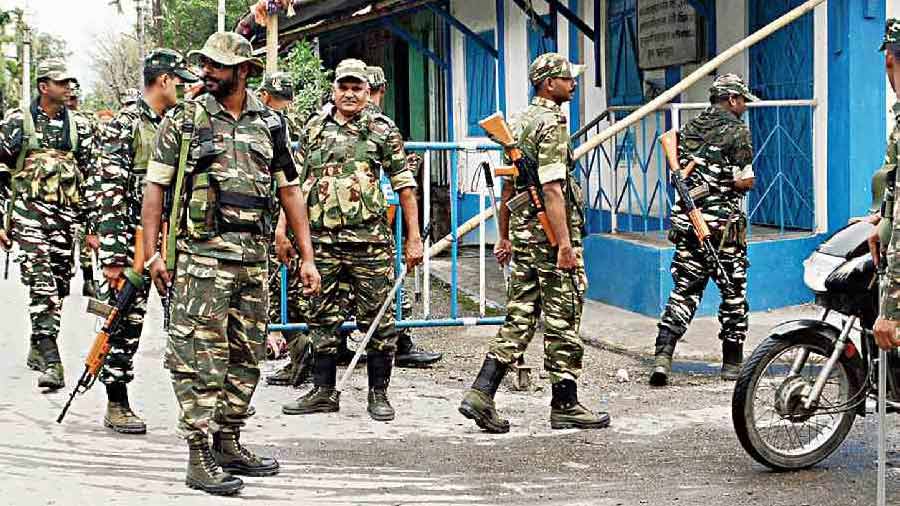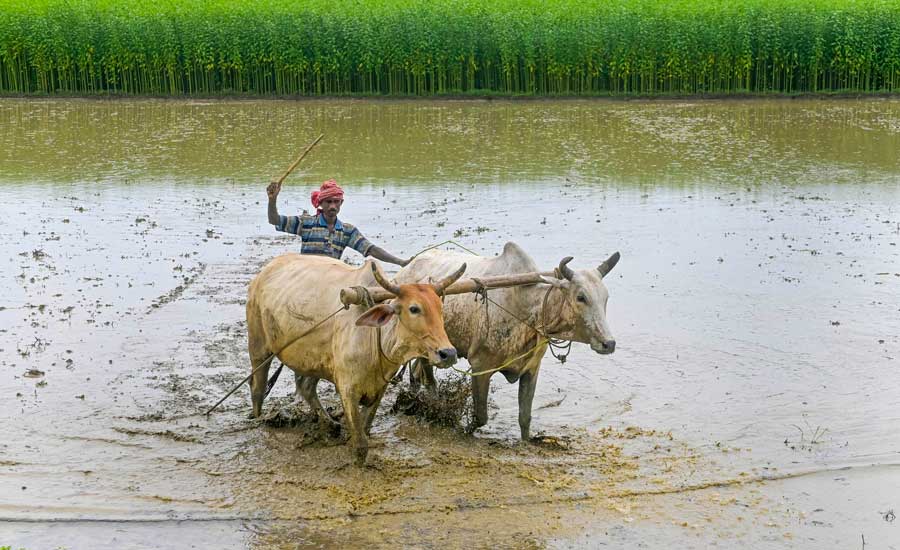A handful of political candidates, including Independents, are going door to door with green promises in the run-up to the panchayat elections in West Bengal but green activists are sceptical about whether the concerns will be addressed post-polls.
A staggering 2,06,295 candidates will be vying for 73,887 seats in a three-tier election scheduled to be held on July 8, according to sources in the West Bengal State Election Commission.
Tarak Ghosh from Nadia, a farmer-turned-mason, is fighting for a seat in the zilla parisad, the highest-tier in the panchayati raj system, with a call to ‘Save the river Jalangi’.
“I live in the area adjoining the river Jalangi. We used to farm on 10-12 cottahs of land earlier but lack of water in the Jalangi has forced us to stop that. Now, I work as a mason and often have to migrate to other states for work. Many in my neighbourhood face the same fate; hence, I have decided to stand in this election with the demand of saving the river,” Ghosh told The Plurals on Tuesday.
Debanjan Bagchi from Jalangi Nodi Samaj, which is backing Ghosh, pointed out that Jalangi remains dry during non-monsoon months and the water has also become extremely polluted. “We have complained to several government bodies without any response and hence, have decided to support Tarak’s candidature,” Bagchi said.
Sandi Hansda, a health worker fighting for the Mohammad Bazar Zilla Parishad seat in Birbhum district, Is opposing the proposed mega coal mining project in Deucha Pachami area. “We are trying to protect our land and stop eviction; and that’s why I have decided to fight this election against all adversaries … I will continue to protest even if I lose the election,” said Hansda, an Adivasi Mahasabha-supported Independent candidate.
A few candidates from the ruling Trinamool Congress, too, are focusing on green issues in their campaign.
Jhindan Pradhan, who was earlier working for a local environmental conservation group, has been nominated by the ruling Trinamool Congress to contest from Bagnan in Howrah district. “Environment, particularly wildlife conservation, be it fishing cats or snakes, is a major focus of my campaign as the local people already know me for such work,” said Pradhan.
Bikash Biswas, a Trinamool candidate from Ketugram 2 panchayat samiti in Purba Bardhaman district, the second tier in three-tier panchayati raj system, is rooting for issues like water conservation; tree planting; waste management in his campaign.
“We all can feel the impact of environmental pollution and I feel all, who aspire to be people’s representatives, should spread awareness about critical environmental issues,“ said Biswas, who is also campaigning to protect the dolphins found in the nearby Hooghly river.
“I support all those candidates who have been campaigning for environmental issues against all the odds. Clearly the green issues, for the first time, have caught the concern of the electorate,” said environmentalist Naba Dutta, secretary of the environmental platform Sabuj Mancha, which has recently released a green manifesto leading to the elections.
“Definitely people, even in rural areas, are gaining awareness about environmental issues, be it waste management or drainage or filling up of water bodies or cutting of trees; and hence, many candidates, who can feel the people’s mood, have started talking about the green issues,” said Biswajit Mukherjee, former chief law officer of West Bengal Pollution Control Board and president of non-profit Paribesh Academy in Hooghly district.
Mukherjee said though any campaigning on green issues, irrespective of a candidate’s political identity, is welcome but it is important to differentiate the candidates with political affiliation with those in fray as Independent candidates. “It will be difficult for the candidates affiliated to political parties to work in favour of green issues consistently, as no political party embraces the green agendas seriously in their political discourse,” he added.
“None of the manifestos reflects key environmental issues confronting rural populace adequately,” complained Dutta. He claimed that when green activists from Sabuj Mancha shared their green manifestoes with several political parties recently, most seemed clueless.
“On Tuesday, we reached out to several political parties from Paribesh Academy. Clearly, green agenda does not seem to be their priority,” said Kunal Sen from Paribesh Academy.
“Actually, the real cause of the indifference runs deeper; acting against the environment, either overtly or covertly, gives immediate financial dividends; and that is the real trigger for a majority of political leaders to not pitch-fork green issues. And it’s easier to violate environmental norms in villages with little monitoring and awareness,” explained a green activist.

